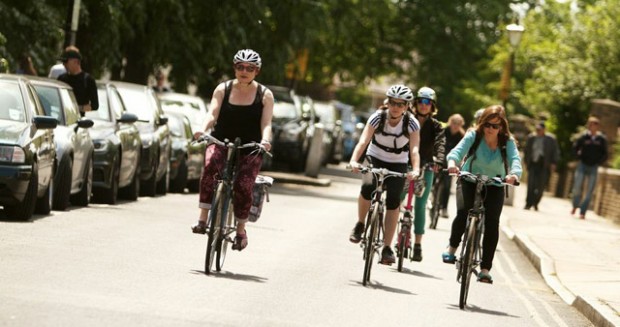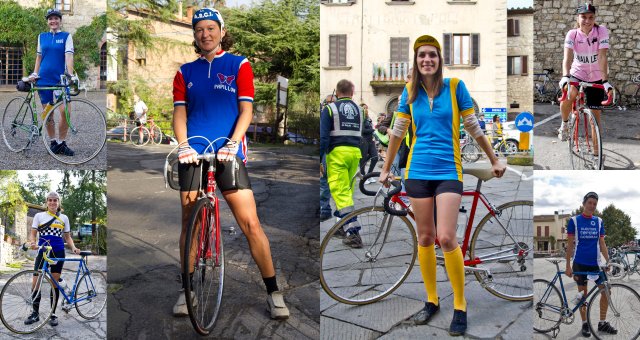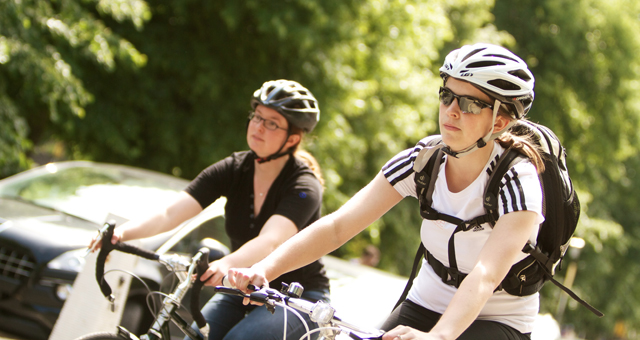Today is national ‘Cycle to Work Day,’ the first of what is hoped to be an annual event to encourage commuters everywhere to hop on their bikes rather than take the car, bus or train.
With the aim of getting 1 million people regularly commuting by bike by 2021 – no small ambition – the hope is that focussing attention on one national day will increase awareness and participation.

Cycle to Work day is the brainchild of Cyclescheme, one of the UK’s main supplier of bikes to companies who have signed up to the cycle to work scheme. The scheme allows employees to purchase a bike through their company at a significant saving, using a salary sacrifice system.
On the eve of the day itself, a panel discussion covering such topics as; the state of cycling in the UK currently, women and cycling, and the attitudes of drivers to cyclists, took place appropriately enough in the London Transport Museum. With only an hour to address some pretty meaty topics, it could only ever be the chance to hear the opinions of the main contributors, and raise a couple of questions. It was fascinating none the less, with many interesting points and views raised.
The discussion was chaired by Philip Darnton OBE, Executive Director of Bicycle Association of Great Britain; the national body that represents the cycle industry in the UK, including manufacturers, distributors and wholesalers.
Dame Sarah Storey DBE, Paralympic gold medallist and champion of Cycle to Work Day was there to put forward her perspective and extensive experience on the matter.
Also contributing to the discussion were Martin Key, campaigns manager for British Cycling, Annette Jezierska, senior business development officer for Sustrans, and Richard Grigsby, founding director of Cyclescheme.
The State of Cycling in the UK
The first issue up for discussion was the state of cycling in the UK, and the majority of panellists agreed that things are looking good, but that there is still a long way to go.
Martin Key felt the situation overall was positive, with the government ‘saying the right words’, but that consistent and meaningful levels of funding were needed to turn words into action. Jezierska noted that there were increased numbers of cyclists using Sustrans routes, and that they were more representative of the communities through which the routes passed.
A representative from the London Cycling Campaign commented that cycling is a mainstream political issue in London, but that this might not be the case in other metropolitan areas, and that getting cycling on the political agenda is critical.
Encouraging more people to commute by bike
Panellists were asked to list the main ways that organisations could encourage more of their employees to cycle. The suggestions included;
- Internal cycling leaders and champions, including visible senior members of staff
- Adequate facilities and infrastructure in the workplace, such as secure cycle storage and shower facilities
- An environment fit for cycling, including good travel conditions and good equipment.
Women and cycling
On the topical issues surrounding encouraging more women to cycle to work, Grigsby noted that, based on the number of companies signing up with Cyclescheme, there was a significantly higher percentage of organisations with a male dominated workforce.
Dame Sarah Storey emphasised that the social aspect of cycling could be a powerful draw for women, and that emphasising the fun, enjoyable aspects initially, rather than the utilitarian aspects, could help. Key agreed, mentioning the success of the Breeze campaign, where the opportunity to cycle off road in a relaxed, non-pressured environment was reaching significant numbers of previously non-riding women.
Jezierska noted that safety was of paramount concern for women, and that therefore adequate road infrastructure was imperative moving forward. She also noted that the rider gender balance on Sustrans greenway routes was an even 50/50 split, postulating this was because they provided a more enjoyable, and safer-feeling environment.
There is clearly a much deeper discussion to be had here that was sadly not possible given the time constraints of this particular event, but we look forward to future discussions on these issues.

Attitudes of Drivers to Cyclists
The mood of the room took a downturn as the issue of motorist attitudes towards cyclists was brought up. The topic was raised by an audience member who had recently ridden in France, and noted a significantly more positive view towards cyclists by drivers on the continent.
It was mentioned that this might be due to more severe penalties for motorists who injure cyclists elsewhere in Europe, and that the current legal penalties in the UK are grossly insufficient.
Education for drivers was cited as an important step, and both the AA and BSM motoring schools now include modules on cyclist awareness. Key highlighted the current work of British Cycling, who are calling for a full review of the issue with the Ministry of Justice and the Department for Transport.
The discussion was a great opportunity to hear the views and opinions of many of the key voices within cycling in the UK, and a campaign that we hope goes from strength to strength.
For more information on the Cycle to Work Day campaign visit their website at www.cycletoworkday.org.





